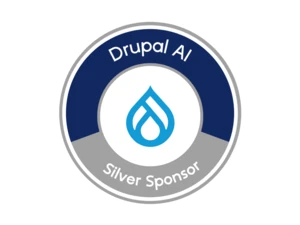How to handle the Drupal 7 End-of-Life in January 2025
In late 2022, Drupal introduced a major release and now we have the latest stable major version Drupal 10. Since then, we have successfully adopted and upgraded several projects to Drupal 10. This version provides numerous new features, increased stability, and definitely assures the future success of our projects. For more details, please refer to our blog post on Our experience of getting ready for Drupal 10.
Unfortunately, along with the new major Drupal version, there are new End-of-Life (EOL) dates for previous versions. A critical topic of concern is Drupal 7, which reaches its EOL on January 5th, 2025, while the EOL date of Drupal 9 is November 1, 2023. If you haven't initiated the migration to the new version yet, there is very little time remaining.
Statistics on drupal.org indicate that nearly half of Drupal projects are still running on Drupal 7. For websites operating on Drupal 7, it is crucial to decide on upgrading and consider migrating to the recently launched Drupal 10 as the next version.
I still recall my initial migration experience to Drupal 8, which admittedly presented some challenges. However, with the passing of seven years, Drupal 8 has undergone continuous enhancements. Now, with the release of Drupal 10, the platform has reached a high level of stability, and the community has gained substantial experience in migrating projects from earlier Drupal versions.
In addition to the fact that the data migration process has become much easier, we now have the opportunity to effortlessly transfer certain custom code to Drupal 10 and seamlessly migrate the business logic of your application. Consequently, the migration process is no longer as complex as it once was. We strongly advise against delaying the decision and recommend embracing Drupal 10 as the new platform for your websites.
When considering alternative scenarios, migrating to Drupal 10 is undoubtedly the best option. Choosing to migrate to other CMS platforms like WordPress, Joomla, or any other would just require additional effort and as a result, miss a chance to use all the community experience implemented in Drupal 10 for your website's future. Continuing to use Drupal 7 after its end-of-life is definitely not the best idea, and even considering Backdrop CMS would limit the potential growth of your website. Drupal 10 adopts an innovative approach by incorporating solutions from the renowned Symfony framework and actively collaborating with the Symfony community to support various components used within Drupal.
Having successfully migrated numerous projects from various sources, drunomics has attained a high level of expertise in migration. Our team is open to new projects that require migration to Drupal 10. With our experience, we can fast and effectively migrate projects of different complexity levels, ensuring the successful launch of new and polished products on Drupal 10.
To summarize, it's time to complete ongoing migrations, but it's also not too late to embark on a new upgrade process. Embrace the improved experience with Drupal 10, which will unlock new possibilities for the future success of your project.





